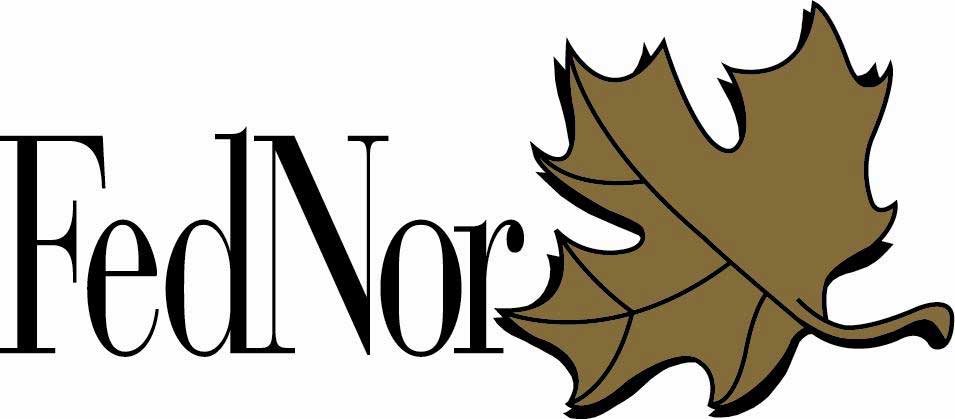OTTAWA – One of the provisions in the federal 2021 budget is a plan to make FedNor, Northern Ontario’s economic development organization for Northern Ontario, a free-standing agency—something Northern communities have long sought for the agency that has played a crucial role in the development of the region. FedNor has remained under the purview of Innovation, Science and Economic Development; at present FedNor is overseen by the Honourable Mélanie Joly, Minister of Economic Development and Official Languages and Minister responsible for FedNor.
“Since the beginning of the pandemic, FedNor has been there to administer crucial support to Northern Ontario businesses and families,” noted FedNor communications officer Barclay Babcock. “Since May 2021, the Regional Relief and Recovery Fund (RRRF), delivered by FedNor, has provided over $90 million in support of more than 1,100 businesses and organizations and helped protect more than 4,600 jobs in Northern Ontario.”
Mr. Babcock noted that the change is much more than simply cosmetic in nature. “As a standalone agency, FedNor will have more autonomy over its administration and activities, enabling it to better respond to the needs of businesses, organizations and communities across Northern Ontario by allowing a quicker launch time for new programs and delivery tools and streamlining of the approval process,” he said. “The COVID-19 pandemic has highlighted the need for quick, effective and tailored measures aimed at supporting communities and businesses, and addressing the downturn in the economy. The Government of Canada is acting now to make FedNor a standalone agency to ensure that these measures and its programming are delivered in lockstep and on par with its Regional Development Agencies in other parts of the country.”
Mr. Babcock continued “as part of the Government of Canada’s Budget 2021, FedNor will be delivering a number of new initiatives in the coming years in addition to its regular programming. These new programs will advance key priorities of regional economies including business financing, tourism, community infrastructure, the aerospace industry, Black entrepreneurship and more. All funding for these programs will be in addition to FedNor’s base budget.”
Through the new RRRF, Canada’s six regional development agencies are delivering $2.08 billion to small- and medium-sized businesses that are unable to access other federal COVID-19 relief measures.
To that end, in Northern Ontario, FedNor is investing $48.3 million by providing financial contributions (interest-free, repayable loans) to help support businesses and eligible not for profit organizations with their operating costs, where revenues have been negatively impacted by the COVID-19 pandemic and other Government of Canada relief supports are not available.
There is $49.9 million available for rural businesses and communities with access to capital and technical support that will be delivered by Northern Ontario’s Community Futures Development Corporations (in Manitoulin’s case that would be LAMBAC and Waubetek).
Algoma-Kapuskasing-Manitoulin MP Carol Hughes applauded the move of FedNor to a free-standing entity, however late in coming it may be.
“Since Tony Martin (Sault Ste. Marie MP from 2004-2011) was elected federally in 2004, New Democrats have been calling for FedNor to be a standalone agency through private member’s bills and motions,” said Ms. Hughes. “We have argued that the agency needed its own budget and a true regional mandate similar to the Atlantic Canada Opportunities Agency. We are happy the government has come to the same conclusion and congratulate them for doing the right thing for the North.”
FedNor has two main funding vehicles, the Northern Ontario Development Program (NODP), which focuses on community economic development, and the Regional Economic Growth through Innovation (REGI) program, which focuses on business scale-up and productivity, and regional innovation ecosystems.
Through the Community Futures Program, FedNor supports a network of 24 Community Futures Development Corporations (CFDCs such as LAMBAC and Waubetek) across Northern Ontario. These locally driven CFDCs provide business financing and services, as well as support for community-based economic development projects.
In addition to those roles, FedNor also adapts as new issues and priorities develop, delivering other federal programs designed to contribute to economic development in Northern Ontario. Recent examples of such programs include the Economic Development Initiative for official language minority communities, women entrepreneurship strategy, as well as the steel and aluminum initiative.
FedNor is also “strongly focused on outreach and collaboration efforts that engage community leaders and stakeholders as we work to better meet the current and future needs of Northern Ontario.” To those ends, FedNor identifies and actively leads important files including the emerging Ring of Fire mining development, “as well as by collaborating with our federal partners to ensure Northerners have full access to the wide slate of programs and services offered by the Government of Canada.”
As Northern Ontario’s designated federal partner it plays a vital role in the region, and with the new stand-alone status, the organization will no longer be required to stand idly by waiting for items to pass through the gatekeeping of its federal minister.





